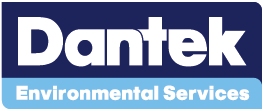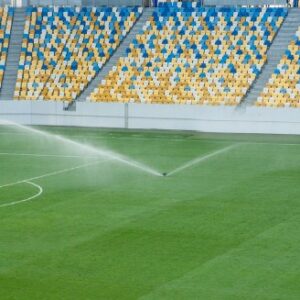Legionella Safety – Importance of a Written Scheme of Control
In the fast-paced and dynamic sports industry, ensuring the safety and well-being of athletes, staff, and visitors is of utmost importance. One critical aspect of maintaining a safe environment is the effective management of water systems to prevent the growth and spread of Legionella bacteria. This blog post highlights the significance of a comprehensive Written Scheme of Control and its role in safeguarding the sports industry against Legionella risks.
Understanding the Written Scheme of Control:
A Written Scheme of Control is a vital risk management document that outlines the measures necessary to control the risk of Legionella exposure in water systems. It provides clear guidance on implementing and managing these measures to ensure water system safety.
Roles and Responsibilities:
The first crucial element of a Written Scheme of Control is defining the roles and responsibilities of key personnel within the sports organization. This includes identifying the overall responsible person and statutory site duty holder who hold ultimate responsibility for the safety of all individuals within the sports community. Additionally, it specifies the person in charge of the day-to-day implementation of the Legionella control policy.
Risk Identification and Control Measures:
The Written Scheme of Control should comprehensively address the risks associated with Legionella and outline the specific control tasks that will be implemented. This involves identifying potential sources of Legionella contamination, such as cooling towers, showers, and other water systems present in the sports facility. The document then describes the control measures that will be employed to mitigate these risks effectively.
Water Hygiene Provider Contact Details:
If applicable, the Written Scheme of Control should include contact information for the water hygiene provider responsible for supporting the organization in implementing the control measures. This ensures that the sports facility can seek expert assistance and guidance whenever necessary.
Record Keeping:
Accurate record keeping is crucial for monitoring and maintaining water system safety. The Written Scheme of Control should outline the procedures and requirements for record keeping, including documentation of regular inspections, maintenance activities, and any remedial actions taken.
Audit and Noncompliance Escalation:
To ensure the ongoing effectiveness of the control regime, regular audits of the Legionella control measures should be conducted. The Written Scheme of Control should detail the audit process, including how noncompliance issues will be addressed and escalated within the organization.
Schematic Drawing:
Including a schematic drawing of the water systems within the sports facility can be highly beneficial. This visual representation helps stakeholders better understand the layout of the systems, aiding in the identification of potential risks and facilitating effective control measures.
Plant Shutdown Procedures:
In the event of maintenance or emergency situations, clear procedures for the shutdown and commissioning of water systems should be documented. The Written Scheme of Control should outline the steps to be followed to ensure proper shutdown and safe restart of the systems.
Risk Assessment Review Procedure:
Regular review of the Legionella risk assessment is essential to ensure that control measures remain up to date and relevant. The Written Scheme of Control should outline the procedure for conducting periodic reviews and any necessary updates to the control measures based on new information or changing circumstances.
Emergency Procedures:
The Written Scheme of Control should include detailed emergency procedures to be followed in the event of a suspected or confirmed outbreak of Legionella. This ensures that the organization can respond promptly and effectively, minimizing the impact of the outbreak on the sports community.
A robust Written Scheme of Control is a vital tool for the sports industry to manage and mitigate the risks associated with Legionella in water systems. By clearly defining roles and responsibilities, outlining control measures, and providing procedures for various scenarios, sports organizations can ensure the safety of athletes, staff, and visitors. Regular review and adherence to the Written Scheme of Control are essential for maintaining water system safety and protecting the well-being of all individuals involved in the sports industry.
Dantek can help: Streamline Legionella Risk Management with Our Custom Written Scheme of Control Template
In the world of Legionella risk management, having a clear and comprehensive plan in place is essential. As an optional extra following your Legionella risk assessment, we are delighted to offer a custom written scheme of control template. This document serves as a live guide, providing step-by-step instructions tailored to your specific site, ensuring effective management of Legionella risks. It is important to note that while this template is a valuable resource, it requires input and ownership from your organization’s management team, particularly the statutory duty holder and responsible person.
A Site-Specific Approach:
Our custom-written scheme of control template takes into account the unique characteristics of your site. By addressing the Legionella risks on a site-specific basis, you can be confident that the control measures outlined in the document align with your facility’s specific needs. This tailored approach ensures a more efficient and effective management strategy.
Ownership and Responsibility:
The statutory duty holder and responsible person play crucial roles in the successful implementation of the written scheme of control. It is their responsibility to review the template and make any necessary amendments to accurately reflect how your organization operates in managing the control scheme for Legionella risk. By taking ownership of the document, you can ensure that it aligns with your organization’s practices and procedures.
Key Components of the Template:
Our written scheme of control template covers all the necessary elements to prevent the growth and proliferation of Legionella bacteria. It clearly specifies the control measures required, providing a comprehensive framework for managing Legionella risks. Additionally, the template describes the procedures for implementing and executing these control measures, ensuring consistency in their application. It also outlines how your organization will allocate and manage the control tasks, ensuring clear responsibilities and accountability.
Referring to HSG274 Part 2:
For a summary of the requirements of a written scheme, we encourage you to refer to appendix 2.2, page 55, of HSG274 Part 2. This publication by the Health and Safety Executive (HSE) provides valuable insights and guidance to complement our template, ensuring that you are well-informed and compliant with the relevant standards. https://www.hse.gov.uk/pubns/priced/hsg274part2.pdf
Completion of Blue Text Fields:
To personalize the written scheme of the control template, certain fields are highlighted in blue text. It is the responsibility of the responsible person or statutory duty holder within your organization to complete these fields, ensuring that the document accurately reflects your specific operations and procedures.
 Managing Legionella Safety in the Sports Industry requires a systematic and tailored approach. With our custom-written scheme of control template, you can streamline your Legionella risk management efforts, ensuring compliance and effective risk mitigation. Remember, it is crucial for the statutory duty holder and responsible person to review and personalize the document to align with your organization’s practices. Take advantage of this valuable resource and proactively protect the health and well-being of all individuals within your facility and ensure the highest standards of legionella safety in the sports industry.
Managing Legionella Safety in the Sports Industry requires a systematic and tailored approach. With our custom-written scheme of control template, you can streamline your Legionella risk management efforts, ensuring compliance and effective risk mitigation. Remember, it is crucial for the statutory duty holder and responsible person to review and personalize the document to align with your organization’s practices. Take advantage of this valuable resource and proactively protect the health and well-being of all individuals within your facility and ensure the highest standards of legionella safety in the sports industry.

 In the world of sports, maintaining pristine playing conditions is of utmost importance. From football and cricket to golf and tennis, the quality of the pitch can greatly impact the performance and safety of athletes. One essential component in maintaining these optimal conditions is the irrigation systems. However, it is crucial to recognize that irrigation systems can also pose potential health risks if not properly managed, specifically when it comes to Legionella contamination.
In the world of sports, maintaining pristine playing conditions is of utmost importance. From football and cricket to golf and tennis, the quality of the pitch can greatly impact the performance and safety of athletes. One essential component in maintaining these optimal conditions is the irrigation systems. However, it is crucial to recognize that irrigation systems can also pose potential health risks if not properly managed, specifically when it comes to Legionella contamination.